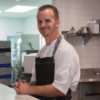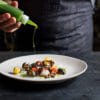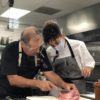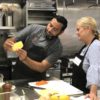Ultimate Guide On How To Become A Personal Chef
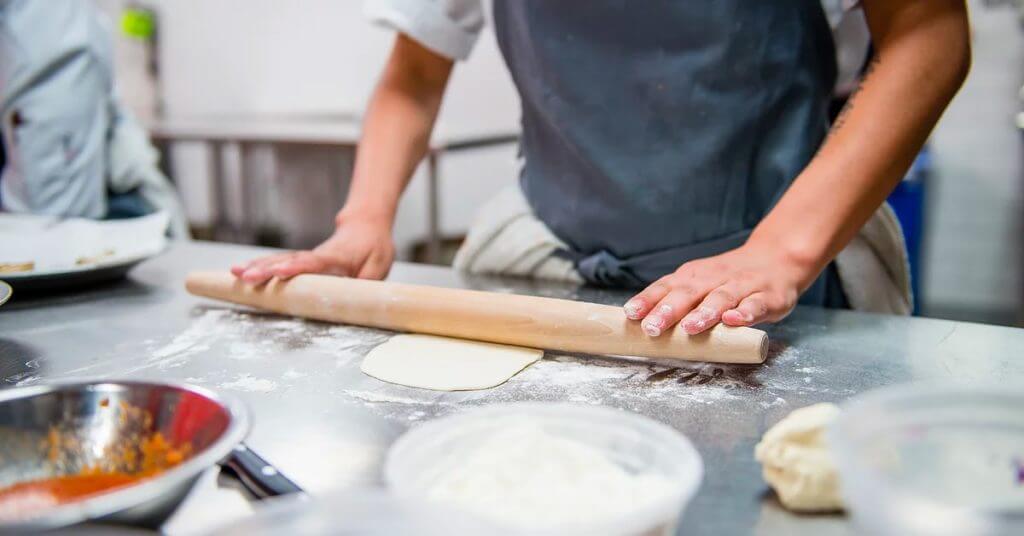
Becoming a personal chef will take many years of training and experience. Many people get the misconception that they will go through a training course and walk out a chef, but this is far from reality. A chef is someone who is in charge of people. To gain this status, you must first become a cook and work your way up. If you are wondering how to become a personal chef, then you must first step through many career achievements to earn the chef title.
What Is A Personal Chef?
A personal chef will prepare meals for private clients. This may be in their home or out of a professional kitchen. Many personal chefs will service multiple clients, and offer their service once a week.
During this time, the chef would prepare multiple meals specified by the client’s dietary requirements or desired menu selection. Each meal will be stored with instructions so that the client will be able to heat the food.
These types of chefs are typically employed by busy professionals and families who do not always have time, or the desire, to prepare their own meals. If you enjoy working on your own, are good with time-management, and have an entrepreneurial spirit, then a personal chef career may be a great option for you.
Personal Chef Job Description
It may seem pretty straightforward what the duties are for a personal chef, but it’s important to realize you will be a one-man show in the kitchen. Chefs who have done this type of work will agree that being a personal chef can be as challenging as running a fully staffed kitchen in a restaurant. This is mainly because you will be responsible for all duties, rather than having someone to do your prep work and clean up.
Duties Of A Personal Chef:
- Creating menus for your clients
- Grocery shopping
- Preparing for special dietary needs (organic, gluten-free, etc)
- Properly storing food with heating instructions
- Correctly handling food
- Cleaning up and sanitizing
- Knowing nutritional information
- Catering to the needs of your clients
- Improving culinary skills
- Effectively marketing through word-of-mouth of satisfied customers
Meal Preparation
One of the main jobs of a personal chef will be to plan and prep all meals. Meal prepping has always been important but is even more prevalent now with the outbreak of COVID-19. A personal chef will be responsible for cleaning all tools, equipment, pots, pans, and prep areas. It is especially important in the food industry to make sure that meal prepping is done correctly.
Sanitizing work areas and the various tools that you will use while cooking will need to be a huge part of what you do every day as a personal chef. Meal prepping will also include having all the ingredients and supplies you need to prepare, store, and write instructions for your clients.
In a commercial kitchen, a sous chef or executive chef would have someone else doing all the preparations needed for a meal. However, as a personal chef, you are directly responsible for each role in the kitchen when preparing meals for your clients.
Personal Chef Vs. Private Chef
A private chef will work with a single client while a personal chef may have several clients. Many private chefs live on-site, prepare fresh meals, and serve them. They are typically required for the preparation of breakfast, lunch, and dinner. Much like a personal chef, a private chef would be responsible for ordering groceries and running the kitchen.
Private chefs may even travel with their clients and are on call 24/7. While both are a great option in the culinary world, a personal chef tends to have more control over their schedule and client base.
5 Tips to Help You Become a Personal Chef
If you have gone through a formal training program and have some experience under your belt, then you may be ready to explore your options in the culinary world. Becoming a personal chef can be very rewarding. If you are not sure where to start, we have some tips to help you out.
#1 Brand Yourself
You never want to make it hard for new and potential clients to find you. You must take the time to create a plan to market yourself. You want potential clients to know what you offer and why they need to hire you.
Everything is online, so it’s important that you make sure you have a digital presence. You will find that most of your new business will come from online searches through Google, Yelp, and Facebook. Therefore, you want to spend some time setting your business up correctly on these platforms so customers can find you when searching. Make your brand clear and accessible!
Another thought is building a quality easy-to-navigate website. If you are not tech-savvy it is recommended that you consult with a digital marketing team. Once your website is set up, you will be able to direct clients to it so they can see all that you have to offer. It is a small investment that will make you look very professional and will bring you a great return in the long run.
#2 Referrals
Every experience through your training and your job as a chef is preparing you for future endeavors. Collect professionally written reviews and use them as future referrals. These are things that clients will want to see before hiring you.
Networking can go a long way, and you always want to keep in mind the image that you are portraying to others. There is a lot that can come from a handshake. Just remember what you know can help give you a solid foundation, but who you know will give you the repeat business.
#3 Customer Service Skills
There is a fine line between being a chef and server when you take on the role of a personal chef. It will be important that you engage with your clients and grow a professional relationship with them. This will build an understanding of what they can expect from you and what you can deliver.
Make your services clear, as this will help avoid any confusion or disappointment. You can gauge a person by their characteristics. If they like a good joke don’t be afraid to tell one and laugh with them. Oftentimes this is the best way to break the ice with a new client. While they are your employer, putting in a little effort will make your working relationship more friendly and pleasant.
#4 Research
It’s important to brand yourself, but it is equally important to know who would be in the market for a personal chef. People such as business professionals, busy families, or bachelors are just some of the few people who may be looking for help when it comes to preparing meals.
Researching your market will help you mold your business and cater to the right client base. In any type of business, it is wise to explore your specific market. In addition, you could select a niche and customize your service to attract a specific customer base.
#5 Business Details
Since you will be in business for yourself, there are some things that you will need to get in place before taking on any work. While culinary schools will review the basics of restaurant management, other important details will vary from state to state and city to city.
Things to research include:
- Operating permits
- Licenses
- Certification
- State taxes
- Liability insurance
You will also want to price out your services. If you are lost on how to start your pricing, there are loads of software that will help you take the price of ingredients, number of guests, and calculate your service cost. You will want to account for equipment such as pots, pans, knives, etc. when building your budget.
Are You Just Getting Started? Explore Your Career Path Options
There are many different paths that you can take to begin your career towards becoming a chef. Just realize that in this line of work you will start at the bottom and work your way up. It will not matter how much you spend on education. It is the experience that will eventually gain you the title of chef. Here are just some of your options when it comes to gaining a formal education in culinary arts.
Community Colleges
Many community colleges offer quality culinary programs. This is a great choice for those looking to gain a culinary education that covers all the basics without a hefty tuition bill. Community classes can sometimes be crowded or hard to get into. Plus, they will not offer an extensive knowledge base as they run on a tighter budget. They may be a great option for the individual who is unsure that they want to become a professional cook.
Culinary School
Culinary school is going to offer you a fast track into the industry, depending on the school. A lot of these types of schools will offer certificate programs that can be obtained in as little as 6 to 12 months. An issue with a formal culinary school can sometimes be the price tag, as you rarely see diploma programs for less than $20,000 and may exceed $75,000 for degree programs. Typically, you will find that culinary school offers a fast-paced environment and does not require prior food industry experience to get accepted.
Hybrid Programs (Culinary School + Apprenticeship)
Hybrid programs are one of the most effective and efficient ways to enter into the food industry. These types of programs will combine hands-on training with a culinary education. The programs are run by industry-leading chefs who can offer students the knowledge and skills that are needed to take their culinary career to the next level.
Personal Chef Frequently Asked Questions
Where Do Personal Chefs Work?
This type of chef can work from a client’s home or at another location. Some choose to work in commercial kitchens, as they are preparing meals for multiple clients.
Do personal chefs work part-time or full time?
Like any other career, a personal chef can choose their hours. Many will work part-time and supplement in with teaching culinary arts. Others choose to take on enough clients to keep them at a full-time status.
Are personal chefs on a salary?
Not typically, they usually get paid by the job. They are considered contractors so only get paid when they are working.
How much do personal chefs make?
According to ZipRecruiter, the average yearly salary is $48,910. This number could be higher or lower depending on your experience,skill level, and geographic location. The hourly wage average comes to about $24 an hour.
CulinaryLab Cooking School
CulinaryLab School offers a year-long diploma program for those who are aspiring to become a chef, learn modern cooking techniques, and pursue a career in culinary arts. Our program is dedicated to providing the most effective training through focused online curriculum, hands-on repetition practice to improve muscle memory, as well as mentorship opportunities.
We Offer:
- 16 to 1 student-teacher ratio
- 1,000-hour apprenticeship
- Hands-on training and no textbooks
- Professional-level culinary instruction
- Skill-building modules
If you aspire to become a chef and work in a professional kitchen, contact us today to learn more about our programs.
